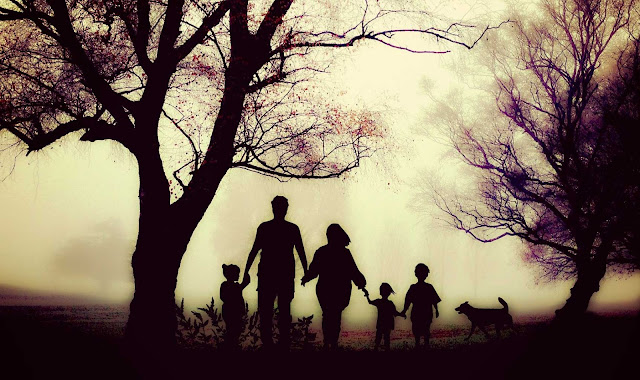My quest for love
As a child, I grew up surrounded by fairytales. In particular, I
remember this blue book of fairy tales that my sisters and I read to ourselves
whenever we were bored. The stories weaved together tales of adventure, magic,
mischief and most clearly, true love. My primary exposure to true love was thus
a completely illusory concept consisting of a single encounter and a pretty
ball gown. Cinderella and Prince Charming danced together once and he tore the
countryside apart looking for the one he could not live without. Prince Philip
met Sleeping Beauty in the woods and one dance had him battling a dragon and
defeating an evil sorceress to get to his beloved again. It was romantic, it
was passionate, and it was utterly deceiving.
Of course, as I got older and reached my teenage years, realizing that love was not like the fairytales, I turned to my next best source: American movies and television. Here, I was told that love was expressed in big gestures. Whether it be Patrick’s serenade of Katherine in front of the entire school in Ten Things I Hate About You, or Mr Darcy confessing his love for Elizabeth in the pouring rain in Pride and Prejudice, I was taught that the only way to truly show someone you loved them was through large performances, garnering attention not only from yourself, but from a crowd of people. And most of all, these movies highlighted the chase, like the grabbing of her arm when she tries to leave or stalking the girl you like (because that’s just so romantic, right?). And these borderline abusive behaviours that filmmakers have wrapped up in pretty paper and smacked a bow on top of are parts of a long-standing problem: Women believe that forcefulness is love.
As a 20-year-old now, and living in Pakistan, I occasionally do watch dramas. While I do love the overdramatic lines and the fast-paced plots, my problem with the concept of love doesn’t lie in the programs exactly, but more with the audience that watches them. I was one of the many viewers of Gul e Rana, and while the show did try to highlight domestic abuse, and the finale did give power to our female protagonist, who finally left the abusive Adeel to become a teacher, the audience chose instead to see the happenings of the drama as romance instead of social commentary. Majority of the viewers were angered with the idea that Gul e Rana had left her abusive husband in the end because although he had been violent, he had cared for her. Yes, I’m sure he really didn’t mean to slap her across the face, or hold a gun to her head (sarcasm intended). And this harmful rhetoric that violence is not a deal breaker in marriage only leads to the idea that at least 39% of women have reported experiencing abuse from their spouses.
I must emphasize greatly, that to find true love we should not turn to our cinemas, our novels or our folklore. Instead, I look for true love within real life. True love does not exist by being romantically involved, but between families, our friends, and those we care for. We should not look for it in big gestures because true love is shy. It peeks out from between the “be careful” and the “have you eaten today?” we hear so frequently in our daily lives. It emerges from the shadows of letting your sister borrow your shirt even though you really wanted to wear it and lending your shoulder to your friend to cry on.
True love exists as a home. And I don’t mean this as a building. We create homes within the people in our lives and in this way, the roof over our heads is instead the sense of security and prosperity we feel by having around us the people who care for us. Yes, I am disappointed as everyone else is, that we might never get someone to slay a dragon for us, or marry the man who fell in love with our corpse (I’m looking at you, Snow White!), but I am also reassured that in order to get the same love experienced by the fairytale characters who danced across the pages of the book my chubby hands turned at night, I do not have to live in a storybook of magic. True love exists, and it is not a princess, but a commoner like the rest of us.
Of course, as I got older and reached my teenage years, realizing that love was not like the fairytales, I turned to my next best source: American movies and television. Here, I was told that love was expressed in big gestures. Whether it be Patrick’s serenade of Katherine in front of the entire school in Ten Things I Hate About You, or Mr Darcy confessing his love for Elizabeth in the pouring rain in Pride and Prejudice, I was taught that the only way to truly show someone you loved them was through large performances, garnering attention not only from yourself, but from a crowd of people. And most of all, these movies highlighted the chase, like the grabbing of her arm when she tries to leave or stalking the girl you like (because that’s just so romantic, right?). And these borderline abusive behaviours that filmmakers have wrapped up in pretty paper and smacked a bow on top of are parts of a long-standing problem: Women believe that forcefulness is love.
As a 20-year-old now, and living in Pakistan, I occasionally do watch dramas. While I do love the overdramatic lines and the fast-paced plots, my problem with the concept of love doesn’t lie in the programs exactly, but more with the audience that watches them. I was one of the many viewers of Gul e Rana, and while the show did try to highlight domestic abuse, and the finale did give power to our female protagonist, who finally left the abusive Adeel to become a teacher, the audience chose instead to see the happenings of the drama as romance instead of social commentary. Majority of the viewers were angered with the idea that Gul e Rana had left her abusive husband in the end because although he had been violent, he had cared for her. Yes, I’m sure he really didn’t mean to slap her across the face, or hold a gun to her head (sarcasm intended). And this harmful rhetoric that violence is not a deal breaker in marriage only leads to the idea that at least 39% of women have reported experiencing abuse from their spouses.
I must emphasize greatly, that to find true love we should not turn to our cinemas, our novels or our folklore. Instead, I look for true love within real life. True love does not exist by being romantically involved, but between families, our friends, and those we care for. We should not look for it in big gestures because true love is shy. It peeks out from between the “be careful” and the “have you eaten today?” we hear so frequently in our daily lives. It emerges from the shadows of letting your sister borrow your shirt even though you really wanted to wear it and lending your shoulder to your friend to cry on.
True love exists as a home. And I don’t mean this as a building. We create homes within the people in our lives and in this way, the roof over our heads is instead the sense of security and prosperity we feel by having around us the people who care for us. Yes, I am disappointed as everyone else is, that we might never get someone to slay a dragon for us, or marry the man who fell in love with our corpse (I’m looking at you, Snow White!), but I am also reassured that in order to get the same love experienced by the fairytale characters who danced across the pages of the book my chubby hands turned at night, I do not have to live in a storybook of magic. True love exists, and it is not a princess, but a commoner like the rest of us.
-Bushra Shah (Batch of 2020)




Comments
Post a Comment